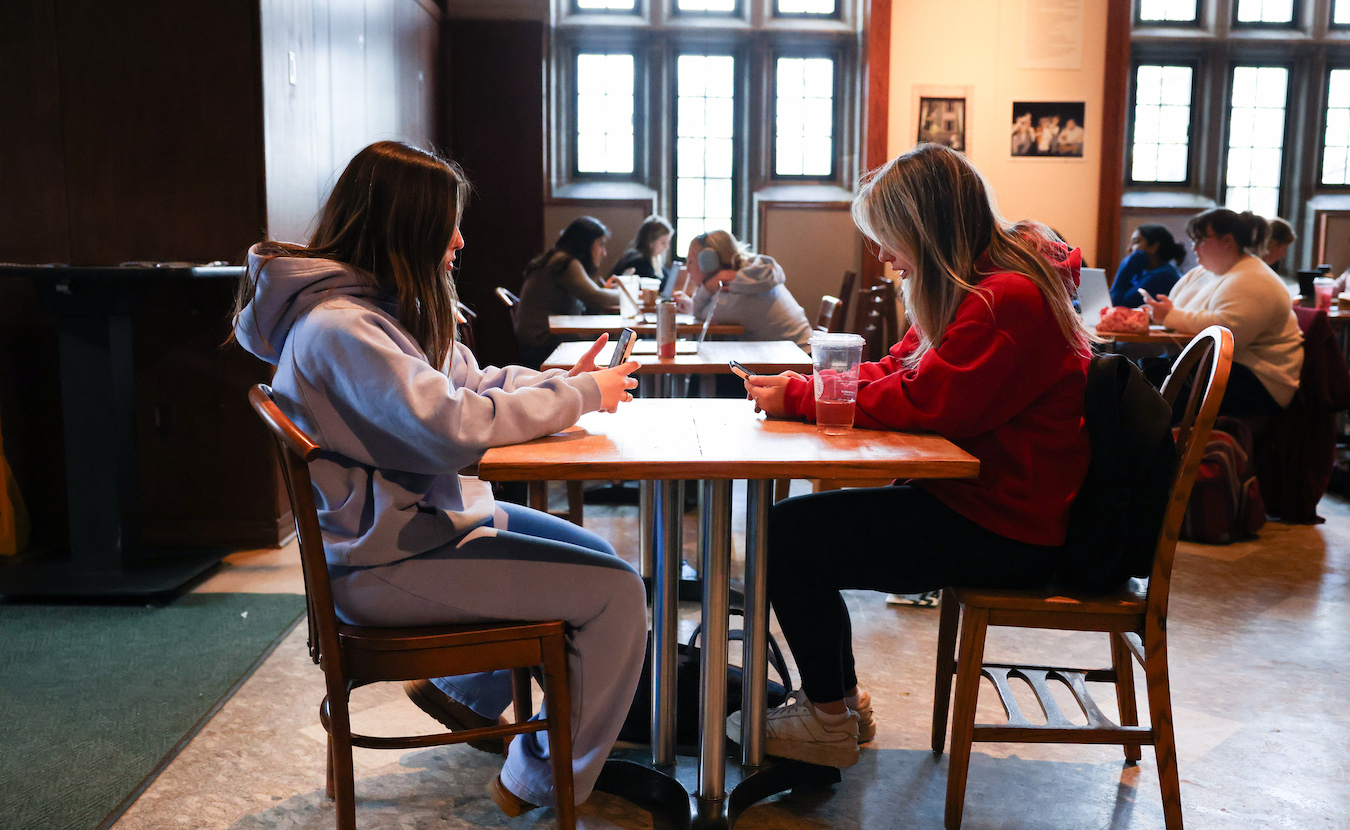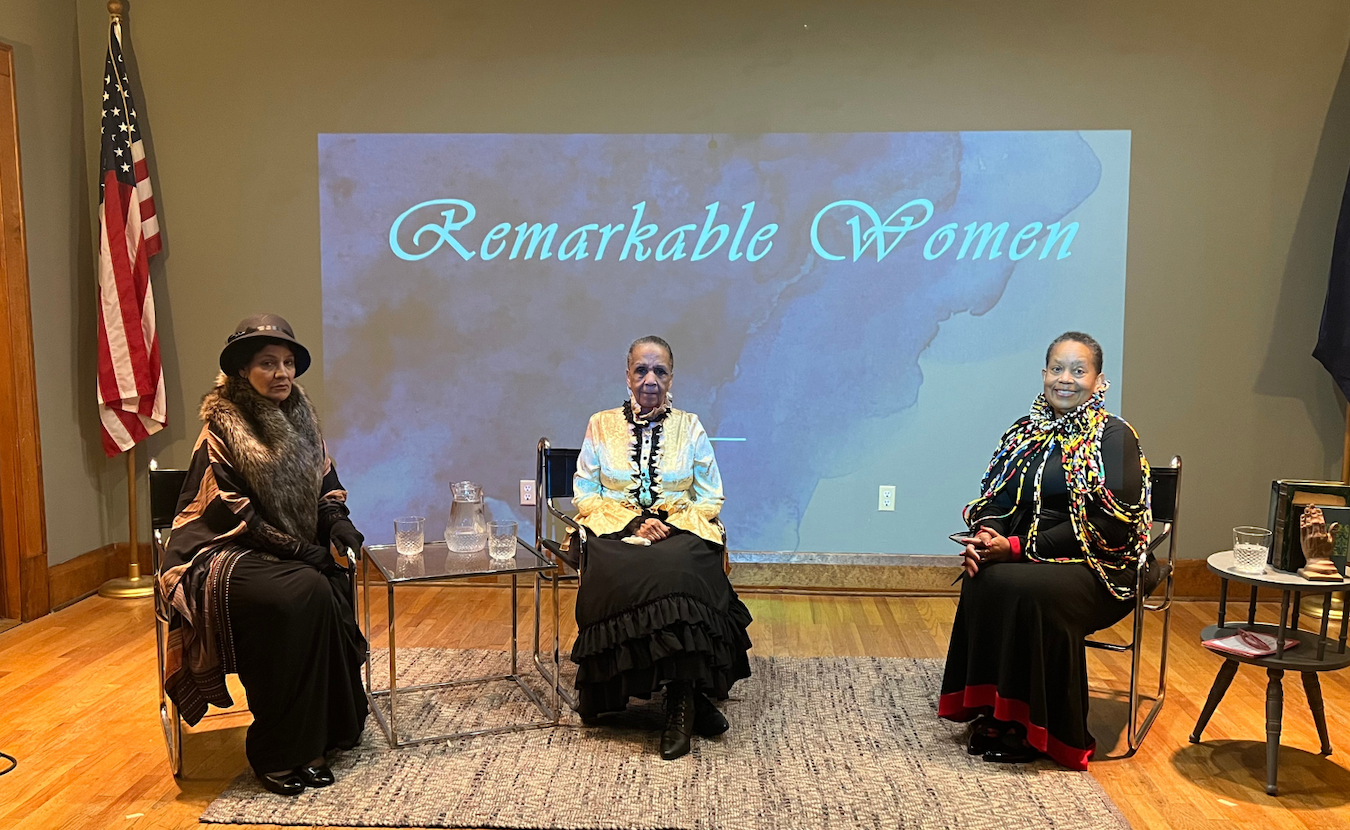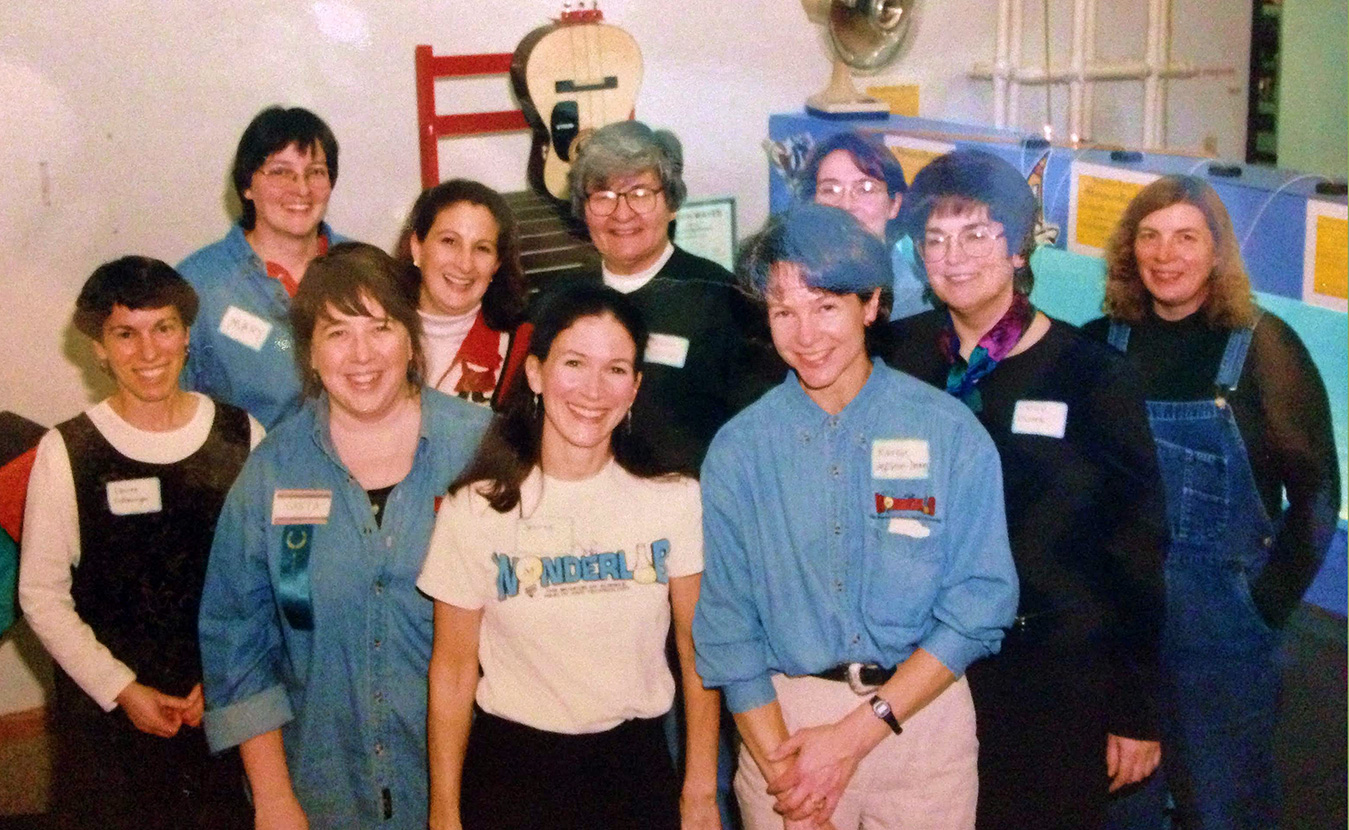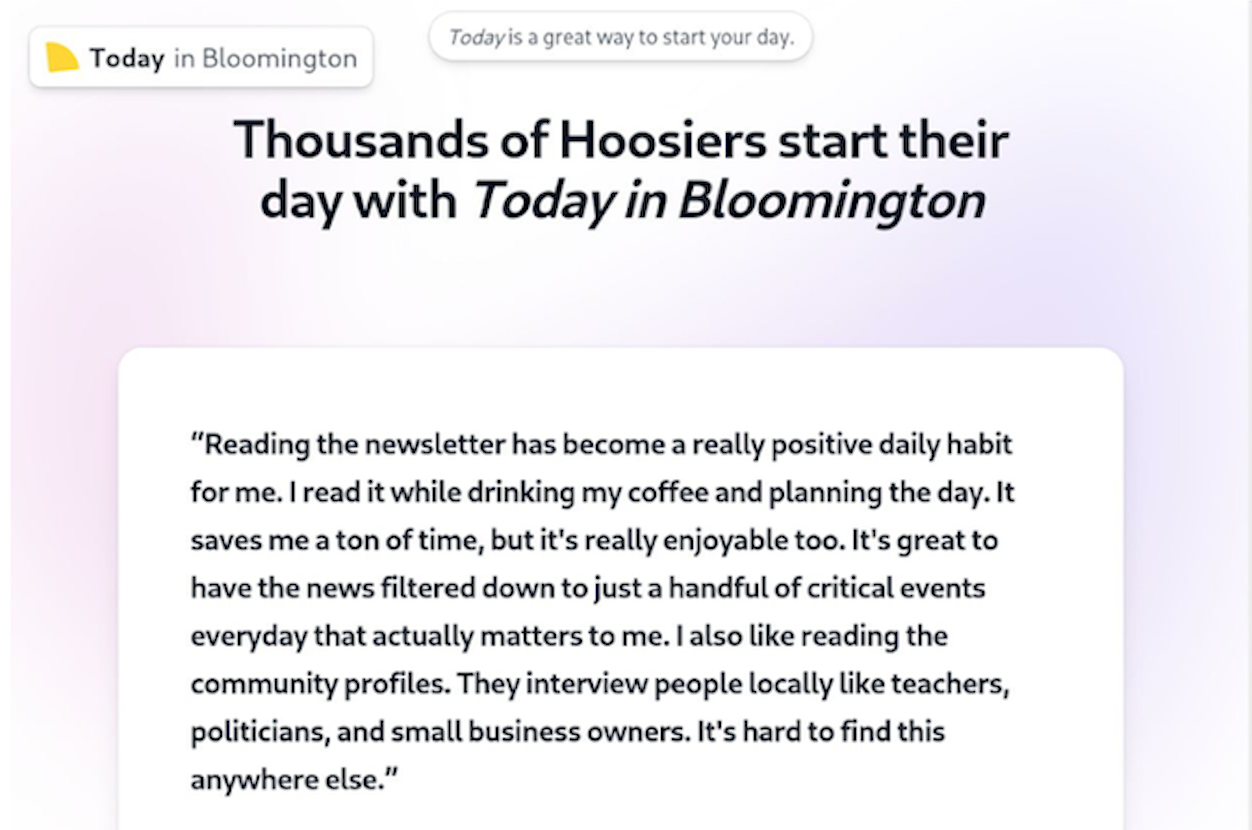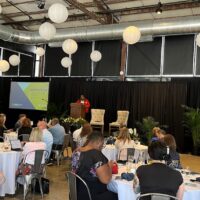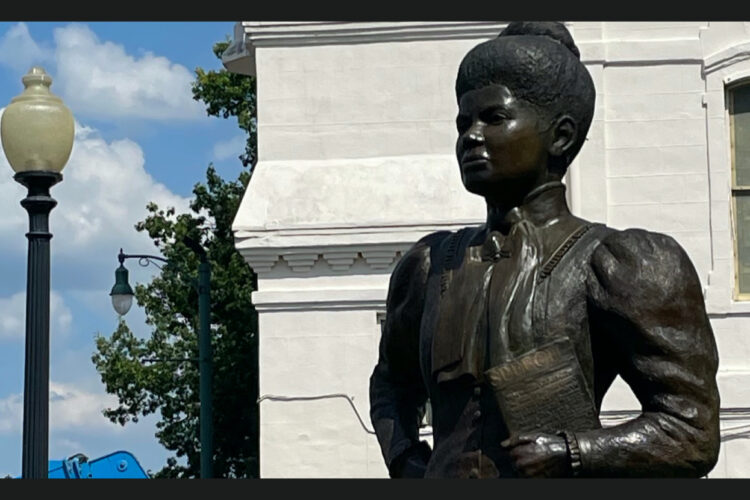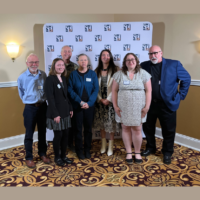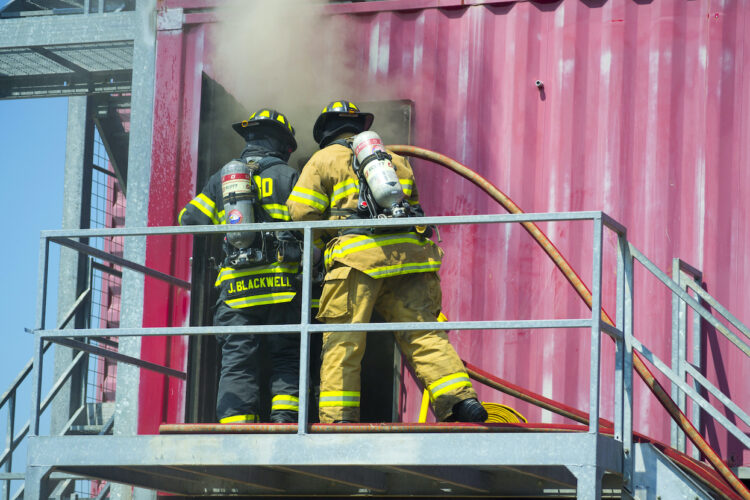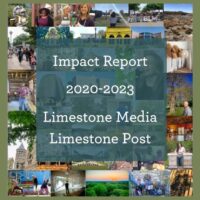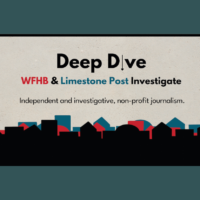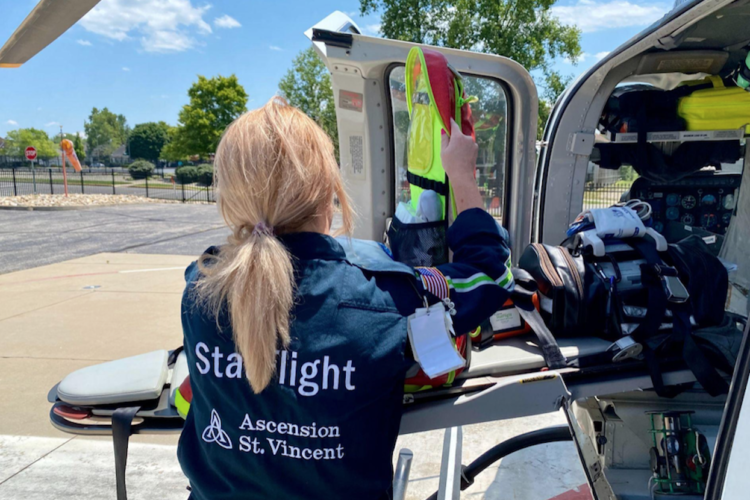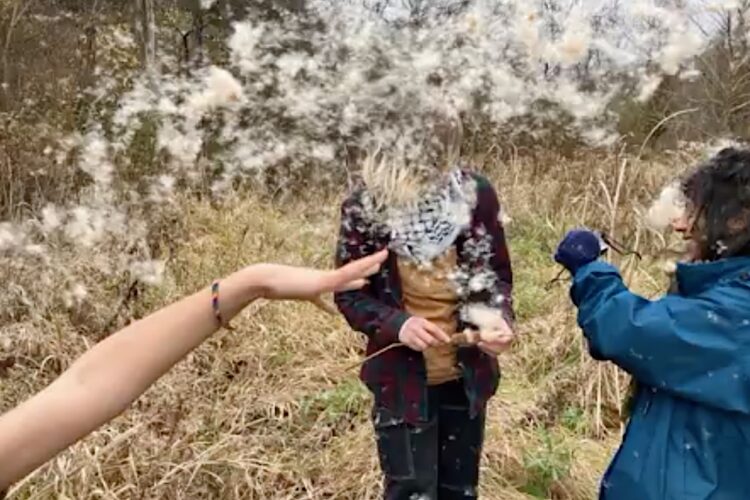A recent survey shows nearly half of Indiana high school students had experienced depression, and a quarter of those students had developed a suicide plan. While mental health professionals do what they can to help students, legislative efforts in Indiana seem insufficient to address this growing problem, writes Rebecca Hill. Read Hill’s Deep Dive report on teen mental health.
Since 2016, Danielle Bruce, Gladys DeVane, and Liz Mitchell have enlightened the public on “the many unknown and un-celebrated contributions of African Americans” to Indiana and U.S. history. The next live performance in their Remarkable Women Series is about Judge Viola Taliaferro. They shared their personal experiences and unique contributions with writer Hiromi Yoshida. Click here to read about these Remarkable Women.
In 1994, a group of Bloomington women conducted a homegrown experiment to create a science playground for children. Today, as it welcomes a new executive director, WonderLab Museum has become a success story far beyond what they imagined. LP contributor Trung Le interviewed some of the women involved with WonderLab since its humble beginnings. Click here to read about the WonderWomen.
Bloomington has several news outlets that report on pressing issues in the community, but because the local news landscape is fragmented, many residents have expressed a desire for a curated summary of the news. A newsletter called Today in Bloomington says it does just that. But is it truly part of the local news ecosystem? Read Mark Stosberg’s analysis here.
The Mental Health Collaborative is a multiyear, multimillion-dollar investment dedicated to enhancing mental health outcomes in and around Monroe County, Indiana. Led by Bloomington Health Foundation, the collaborative brings together business leaders, service providers, nonprofits, lawmakers, clinicians, and concerned citizens to address the significant and complex challenges that impact mental health access and support. Click here to read about the Mental Health Collaborative.
Ida B. Wells spent much of her career as a journalist in the late 1800s shedding light on the horrors of lynching. The writer, editor, activist, and co-founder of the NAACP has been called the most famous Black woman of her time in the U.S. This article by Richard Campbell shows her lifelong fight for racial justice. Click here to learn more about Ida B. Wells.
Ruthie Cohen is back in the kitchen! After a two-year, too-long hiatus, LP’s aproned sage is once again serving up delicious recipes. This month, she stirs the pot by showing us how to spice up the pantry and make chermoula, a savory Moroccan sauce that works with vegetables, fish, meats, and couscous. Click here for the whole chermoula.
Limestone Post won 11 awards in the “Best in Indiana” Journalism Contest hosted last week by the Indiana Pro Chapter of the Society of Professional Journalists. Steve Hinnefeld, Haley Miller, Christina Avery, Christine Brackenhoff, Steven Higgs, Michael G. Glab, Rebecca Hill, Jill Bond, Krista Detor, and Debora Shaw were among the winners. | Photo by Benedict Jones. Learn more about the work of these award-winning writers.
Marsh Madness, February 14–15 at Goose Pond FWA, celebrates the sandhill crane migration that stops in Greene County and fuels an economic boost to the community. The annual event was established by the nonprofit Friends of Goose Pond, which supports the wetlands that attract numerous species of migratory birds. Read the article by Carol Johnson of the Southern Indiana Business Report.
Winter in Indiana is prime season for house fires, but the Bloomington Fire Department’s Fire Prevention Division works year-round to reduce the risk of fires and promote fire safety. This photo essay by Nick Bauer shows the work being done to prevent fire tragedies in Bloomington. Click here for Bauer’s article and photo gallery.
Limestone Media had a momentous year in 2023! As seen in our 2023 Impact Report, last year was a banner year for our flagship publication, Limestone Post Magazine. Not only did we publish more stories and increase our presence in Bloomington and surrounding communities, but each year our public-service journalism has greater impact in our community. Click here for Limestone Post’s 2023 Impact Report.
A new report gives Indiana a grade of D for funding public schools, and the state ranks 32nd in percent of GDP allocated to K-12 schools. As education reporter Steve Hinnefeld writes, with Indiana’s 2025 legislative session underway, the priorities of the Republicans who control state government would be problematic for public schools. Read Hinnefeld’s column here.
As communities become more Democratic or Republican, their citizens have to cope with ever more left-wing or right-wing policies. As political science scholar Marjorie Hershey writes, polarization tends to make each party “less diverse internally and more different from the views and social characteristics of the other party.” What can be done about it? Click here for a Deep Dive into political polarization.
Limestone Post and WFHB Community Radio are finalists in the 2023 Nonprofit News Awards for Journalism Collaboration of the Year. Their local news series, called Deep Dive: WFHB & Limestone Post Investigate, is one of three collaborations nationwide selected by the Institute for Nonprofit News. The Limestone Post article, “The Long Goodbye: Living with Alzheimer’s Disease,” by Rebecca Hill, is also a finalist for INN’s Insight Award for Explanatory Journalism. Click here to read more.
The individual journeys people take to the emergency medical profession are varied and can differ by geography. Christine Brackenhoff profiles four EMS professionals in south-central Indiana to learn how they got where they are, and why. She also found a strong spirit of interconnectivity for first responders and EMS agencies across our region. Click here for the story.
Students in the American Studies class at Bloomington’s Academy of Science and Entrepreneurship were asked to identify their sense of place. Each student made a video to learn about their special place’s “larger connection to our shared home of southern Indiana.” And as ASE students have done since 2016, they’ve shared their videos with us. Watch their “sense of place” videos here.

